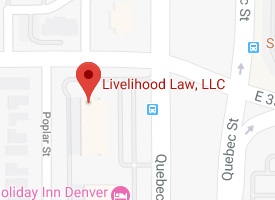
When a job separation occurs, for any involuntary reason, the anxiety can be overwhelming. Some employers will offer severance agreements to employees. However, companies do not provide these separation packages out of the goodness of their hearts. A severance agreement reduce an employer’s liability and lessen the chances of a former employee filing a lawsuit or damaging the company’s reputation. The employer’s proposed agreement is written in the employer’s best interest.
Many workers feel that they have no say in the severance packages offered to them. But this is not true. If you have received a severance offer or think that you will receive one soon, here’s what you need to know to maximize the benefits under your severance agreement.
What’s the difference between a severance package and severance agreement?
A severance package is an employer’s offer of monetary compensation and benefits for a voluntary or involuntary layoff. A severance agreement is a contract between an employer and an employee that spells out the terms under which the employee will receive the severance package. Generally, to receive monetary compensation after a layoff, an employee must agree to a release of legal claims against the employer, among other things.
What happens once I receive the agreement?
Upon receiving a separation agreement, your employer will usually give you time to consider their offer. Although there are no guidelines requiring organizations to provide employees a specific amount of time for contractual review, there are two federal laws designed to protect particular classes of workers.
Under the Older Workers Benefits Protection Act (“OWBPA”) employers must give workers over 40 years old at least 21 days to consider the separation agreement and 7 days to revoke it after it’s signed. Under the Worker Adjustment and Training Notification Act (“WARN”), organizations with more than 100 employees must give workers at least 60 days notice of any company or sizeable departmental closing. If the employer fails to comply with WARN, then the laid-off workers are legally entitled to severance pay.
My employer says that the severance agreement is non-negotiable, is that true?
Your employer may tell you that their separation agreement is non-negotiable, but that is not necessarily true. There are almost always terms up for negotiation when it comes to severance contracts. Some common negotiated terms include the dollar amount, payment for vacation and sick time, and the timing of and method in which your former employer will distribute your severance payments. The best way to ensure that the terms of your severance contract are reasonable in your situation is to consult with an attorney before you sign.
What rights am I giving up by signing a severance agreement?
While the terms of separation agreements vary, almost all of them require that employees give up certain rights and agree to certain conditions. Some common rights and conditions include the right to sue your employer, the right to compete against your former company in business within a specific geographic location for a period of time (non-compete), the right to disclose the terms of the agreement to outside parties (non-disclosure), and the right for either side to discuss your separation from your former employer (non-disparagement). Even if you agree to those conditions, you still have the right to file a charge of discrimination or harassment with the EEOC or participate in an EEOC investigation.
Can an employer breach the terms of this agreement?
Yes. Once a separation agreement is signed, your previous employer is contractually obligated to do what it agreed to do, and you would have a breach of contract claim if they do not comply with the terms of the contract.
If you need help negotiating the terms of your severance agreement, Livelihood Law can help. Contact us today so that we can help you maximize your benefits.
Another post that you may find helpful is: 3 Things to Know Before Signing a Severance Agreement.


